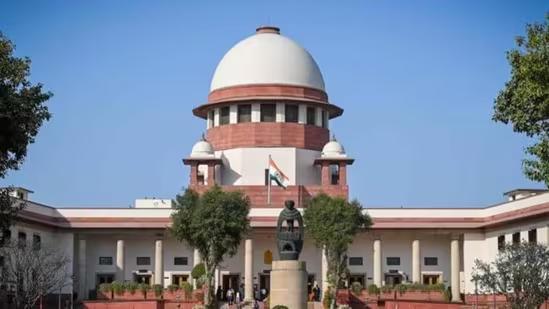
Court Can’t Grant Assent to Bills, Only Guv & Prez Can: Maha to SC
In a recent development in the presidential reference case, the Maharashtra government has argued in the Supreme Court that courts cannot accord assent to bills and only the Governor and President have the power to do so. This statement was made by Senior Advocate Harish Salve, representing Maharashtra, during the hearing on Tuesday.
The presidential reference was initiated by President Ram Nath Kovind, seeking the court’s guidance on whether the court could impose timelines for the Governor and President to deal with bills passed by state Assemblies. The Supreme Court is currently hearing the matter, and the Maharashtra government’s argument is likely to have significant implications on the powers of the legislative, executive, and judicial branches of government.
According to the Maharashtra government, the Governor and President have the power to accord assent to bills passed by state Assemblies, and the court cannot usurp this authority. Salve, while arguing the case, emphasized that the power to accord assent is a constitutional power that can only be exercised by the Governor and President.
The Maharashtra government’s argument is based on the fact that the Constitution explicitly vests the power to accord assent in the Governor and President. Article 111 of the Indian Constitution states that the President shall give his assent to bills passed by both Houses of Parliament, while Article 200 states that the Governor shall give his assent to bills passed by the state legislature.
The Maharashtra government’s stance is also supported by the principles of separation of powers, which are enshrined in the Constitution. The Constitution divides power between the legislative, executive, and judicial branches of government to prevent any one branch from becoming too powerful.
In addition, the Maharashtra government argued that if the court were to grant assent to bills, it would be equivalent to the court making laws, which would be a violation of the separation of powers principle. This would undermine the democratic process and the legislative authority of the state Assemblies.
The Maharashtra government’s argument has significant implications for the functioning of the government and the legislative process. If the court were to grant assent to bills, it would give the court a significant amount of power over the legislative process, which could potentially lead to the court making laws rather than interpreting them.
On the other hand, the Governor and President’s power to accord assent is subject to certain conditions and limitations. For example, the President can withhold assent to a bill if it is deemed to be incompatible with the Constitution or if it is deemed to be harmful to the country. Similarly, the Governor can also withhold assent to a bill if it is deemed to be incompatible with the Constitution or if it is deemed to be harmful to the state.
In conclusion, the Maharashtra government’s argument that courts cannot grant assent to bills and only the Governor and President have the power to do so is a significant one. The Supreme Court’s decision in this matter is likely to have far-reaching implications for the powers of the legislative, executive, and judicial branches of government. The court’s decision will be closely watched by all stakeholders, including the government, opposition parties, and civil society organizations.






